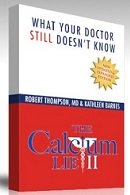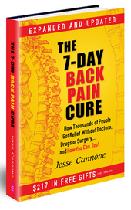|
The Dangers of Soy and
Unfermented Soy Products
The dangers of soy and unfermented soy products for use in human consumption are best understood by going back in history and following the development of the soy industry.
The Origin of Soy and Soy Products
Originally, a few thousand years ago, the soybean plant was used for detoxifying and regenerating soil (being a legume, it fixes nitrogen) and not for human consumption. Now, science is again realizing the dangers of soy and the need to first ferment it to make it edible.
About 3000 years ago, the Chinese discovered a mold that could destroy the toxins in the soybeans and make the nutrients in the soybeans safely available for consumption. This fermentation process, which makes soy products much more digestible, led to the development of such popular fermented soy foods as tempeh, miso, and natto.
A few centuries later, a process was developed to soak, grind, boil and strain fresh or dried soybeans to make soy milk. The soy milk was then coagulated using various salts (most commonly calcium chloride in North American tofu production) to produce curds which were then pressed into tofu. But this process does not remove the dangers of soy.
False Claims of Common Asian Use
Contrary to what the soy industry says, tofu and other non-fermented soy products were never used in large quantities in Asia. In answer to the question "How much soy did Asians eat?" the SoyOnline Service (http://www.soyonlineservice.co.nz/01history.htm) says:
"In short, not that much and, contrary to what the industry may claim, soy has never been a staple in Asia. A study of the history of soy use in Asia shows that it was used by the poor during times of extreme food shortage, and only then the soybeans were carefully prepared (e.g. by lengthy fermentation) to destroy the soy toxins. Yes, the Asians understood soy alright!"
Why is it Made to Sound So Good?
In 1913, soy was listed in the U.S. Department of Agriculture (USDA) handbook as an industrial product; not as a food. The soy industry had become very large due to the demand for soy oil. With the excess of soy protein residue as a by-product, there was motivation to find a market for it. There was an intense campaign of advertising and lobbying by the Food and Drug Administration (FDA) with the result that most consumers now believe that soy products are healthy. In fact, it is becoming more apparent that the research showing soy products to be healthy was far from accurate, and influenced by economic motives.
So What are the Dangers of Soy?
Soybeans in an unfermented state contain potent toxins and anti-nutrients that are harmful for human consumption. The three major problem items are phytates, goitrogens and phytoestrogens.
All plants have some anti-nutrient properties used in their protection from solar radiation, protection from invasion by bacteria, viruses, or fungi and from foraging insects. The soybean plant, it turns out, is especially rich in such chemicals. One source says:
"If they are not removed by extensive preparation such as fermentation or soaking, soybeans are one of the worst foods a person can eat."
Here are just some of the dangers of (unfermented) soy consumption:
- ADD and ADHD
- allergies
- digestive distress
- endometriosis
- higher risk of heart disease
- immune system breakdown
- increased cancer risk
- malnutrition
- PMS
- reproductive problems for men and women
The people who experience the worst effects from the dangers of soy are:
- infants who are fed soy formula
- vegetarians with a high intake of soy products
- women with the symptoms of menopause (often thinking soy might help their condition)
Suffering of Inmates
An example of the many dangers of soy is the account of inmates in a prison operated by the Illinois Department of Corrections"
"Early in 2007, the Weston A. Price Foundation began hearing from inmates who were suffering from myriad serious health problems due to the large amounts of soy in the diet. ... Complaints include chronic and painful constipation alternating with debilitating diarrhea, vomiting after eating, sharp pains in the digestive tract, especially after consuming soy, passing out, heart palpitations, rashes, acne, insomnia, panic attacks, depression and symptoms of hypothyroidism, such as low body temperature (feeling cold all the time), brain fog, fatigue, weight gain, frequent infections and enlarged thyroid gland. Since soy contains anti-fertility compounds, many young prisoners may be unable to father children after their release."
Read more about the dangers of soy at The Weston A. Price Foundation website
Here are links to other pages with descriptions of the specific dangers of soy:
Soy and thyroid problems describes the detrimental effects of soy on the thyroid gland.
Side effects of soy discusses the negative effects of soy on digestion and how that can impact your health.
Soy milk and estrogen reveals the connection between this hormonally-active food and the many hormonal problems prevalent today.
Read these pages and you will have a better understanding of the dangers of soy and what you might do to avoid them.
|
Keep up to date with
valuable insights into
pain management via
a healthy lifestyle.
Receive the monthly
Natural Pain Relief
Guide Newsletter.
News articles, health
tips, specials, freebies.
Enter your email and name
in the form to the right.
|
|
|








New! Comments
Have your say about what you just read! Leave me a comment in the box below.